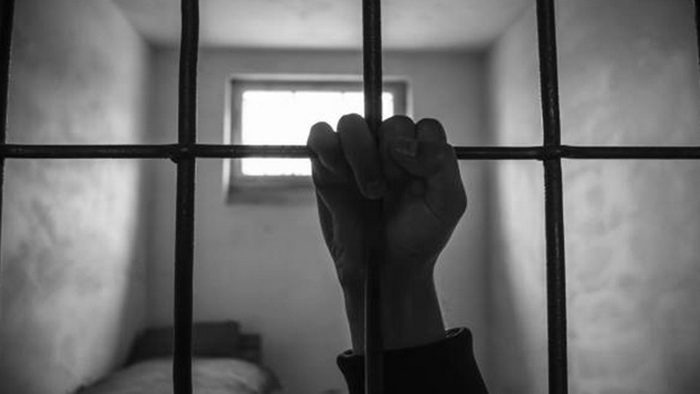In today’s world of expanding global connectivity grounded by the law-based international community established after World War 2, human rights violations are an ever growing concern. It is an issue that has become a benchmark for a state’s legitimacy on the world stage. In an attempt to claim that legitimacy, states like the Kingdom of Bahrain – which faces accusations of systemic torture and widespread human rights abuses – have established ostensibly semi-independent organizations focused on promoting human rights as a way to deflect attention from their violations. To this end, Bahrain established the National Institute for Human Rights (NIHR), meant to be an independent organization that investigates human rights abuses and is focused on promoting human rights in Bahrain. However, the United Nations Committee Against Torture (CAT) has said Bahrain’s NIHR, among other bodies like the Ministry of Interior Ombudsman, is “not independent” and “not effective given that complaints ultimately pass through the Ministry of the Interior” – the kingdom’s chief security body responsible for the vast majority of human rights abuses. Ultimately, oorganizations like the NIHR are meant to whitewash abuses by the state while providing a façade of legitimacy.
On 16 September 2018, for example, it was reported by family members of Hajer Hassan that she had been beaten and hospitalized by prison guards in Isa Town. Currently Hajer Hassan is imprisoned in Bahrain after being charged and convicted of planting a fake explosive device. The charges against Hajer Hassan have been challenged by the United Nations Secretary-General, saying they are “fabricated” and a reprisal for human rights work done by her son-in-law, Sayed Alwadaei, the director of the Bahrain Institute for Rights and Democracy (BIRD), who lives in Britain and works to expose Bahraini human rights abuses. This particular incident, the beating of Hajer Hassan, is retaliation for Sayed Alwadaei’s briefing of British Members of Parliament on the human rights abuses in Bahrain. The briefings have come British parliamentarians review the United Kingdom’s involvement in security programs with Gulf states.
Amnesty International later released a more complete report on 28 September 2018, detailing the torture of Hajer Hassan and others. It also includes details about Bahraini authorities withholding medical care from those they have tortured, describing this as “willful medical negligence following alleged beatings.” In addition to refusing Hajer Hassan medical treatment following torture, Bahraini authorities have also refused to give a diagnosis on breast cysts that Hassan has, which may be cancerous.
On 2 October 2018 the Bahrain government-run NIHR released a statement refuting the claims of inmates in Isa Town, the prison where Hajer Hassan and other women are held. Their refutation is part of a trend of denial and obfuscation of the Bahraini government’s systematic torturing of dissidents. For example, the Bahrain government created the Bahrain Independent Commission of Inquiry (BICI) by Royal Decree to investigate human rights violations in the 2011 Arab Spring uprising, including arbitrary detention and torture. While the government claimed to have reviewed and implemented the BICI’s 26 recommendations, a joint analysis by NGOs, including ADHRB found that some of the most fundamental abuses addressed by the BICI continue unabated in Bahrain.
Earlier, in September 2018, the NIHR had declared there was no systemic torture in Bahrain, but human rights groups have declared the statement “at odds with reality.” The UN reinforces this assessment with the CAT writing a report expressing their concerns about the Bahraini NIHR and its clear lack of independence. Specifically, they write in a report that “the Committee is concerned that these bodies are not independent, that their mandates are unclear and overlapping and that they are not effective given that complaints ultimately pass through the Ministry of the Interior.” They also cite a lack of evidence that the NIHR has concrete outcomes.
Along with concerns about the legitimacy of organizations like the NIHR, it has also been reported that it is backed by the United Kingdom, which provides training and consultation to the NIHR and its personnel. The United Kingdom’s support for Bahrain’s flawed human rights institutions is similar to its support for the Joint Incidents Assessment Team, which is nominally supposed to investigate allegations of war crimes and civilians’ deaths perpetrated by the Saudi-led coalition fighting the war in Yemen, such as the case of the bombing of 40 children on a field trip. It is worrisome that the United Kingdom Foreign Office appears to be working with and thus sanctioning these actions of white-washing and other human rights abuses. The Foreign Office spokesman told reporters that “The UK continues to support Bahraini-led reform through a package of technical assistance.” What reform he is referring to is a pertinent question, as Bahrain has been reported to be intensifying their use of torture against detainees.
In an attempt to avoid global attention focused on their human rights abuses, states establish nominally independent human rights investigation bodies to cover up abuses. using the legitimacy of these organizations when creating their own, in an Orwellian attempt to hide or cover the facts of their abuses may be a rising issue of concern in being able to hold state’s like Bahrain accountable for their actions.
Joshua Myers is an Advocacy Intern at ADHRB





